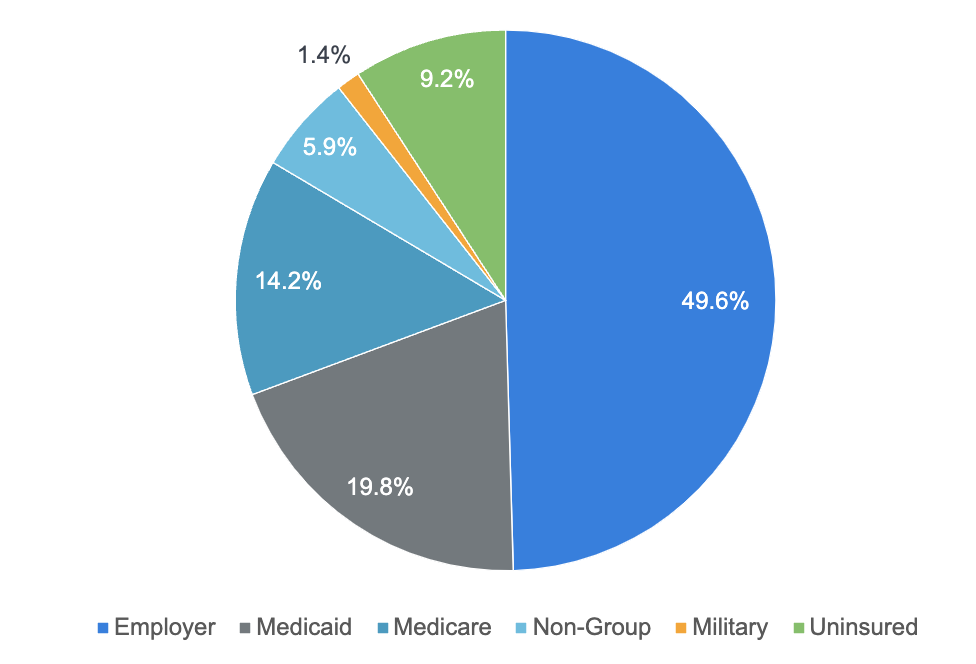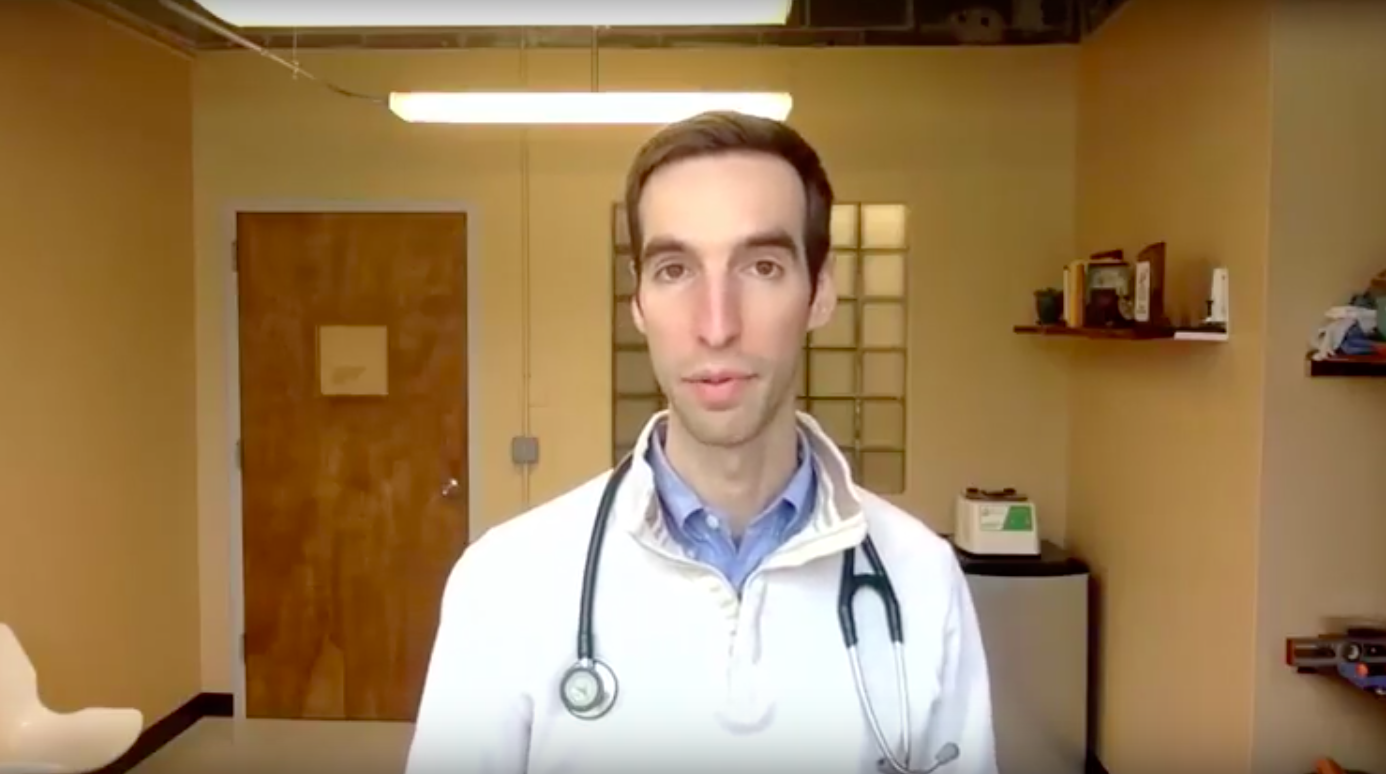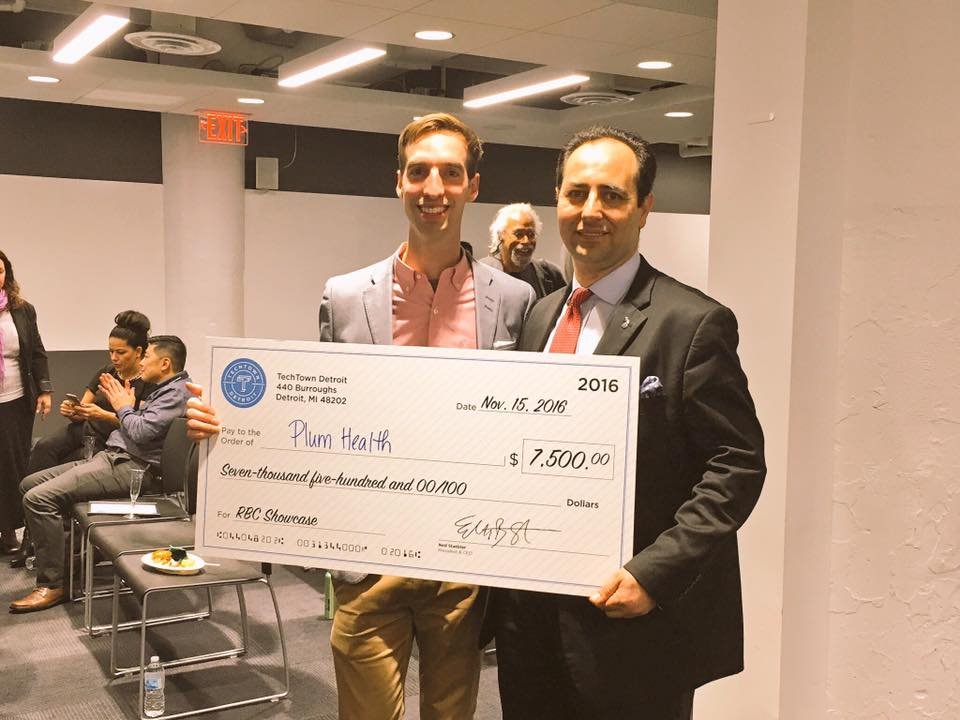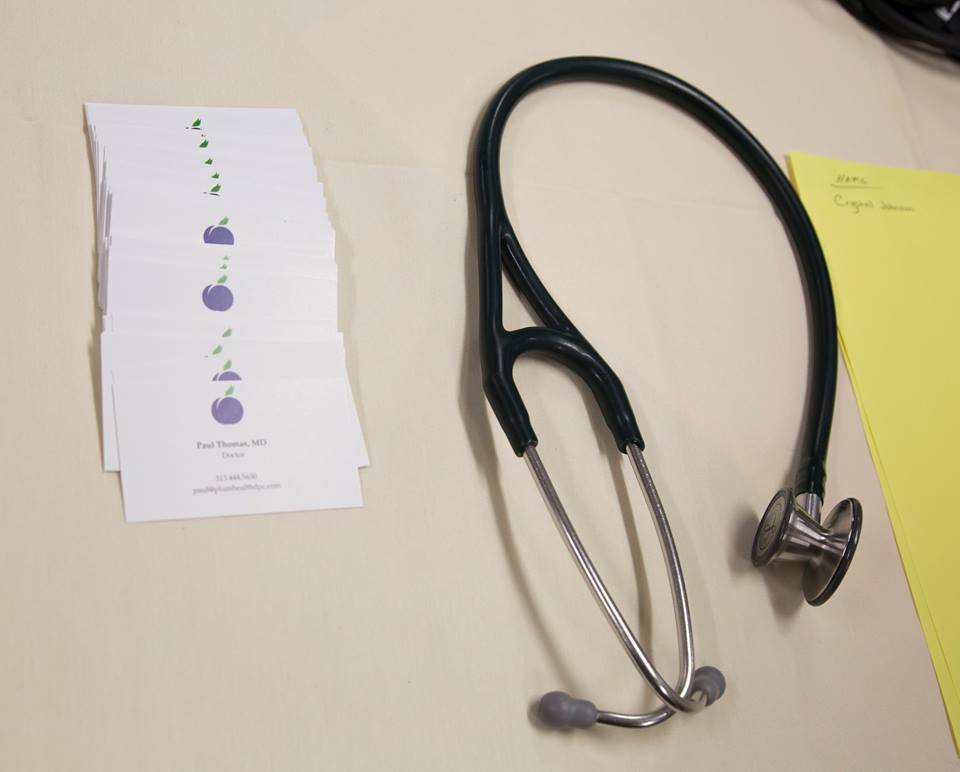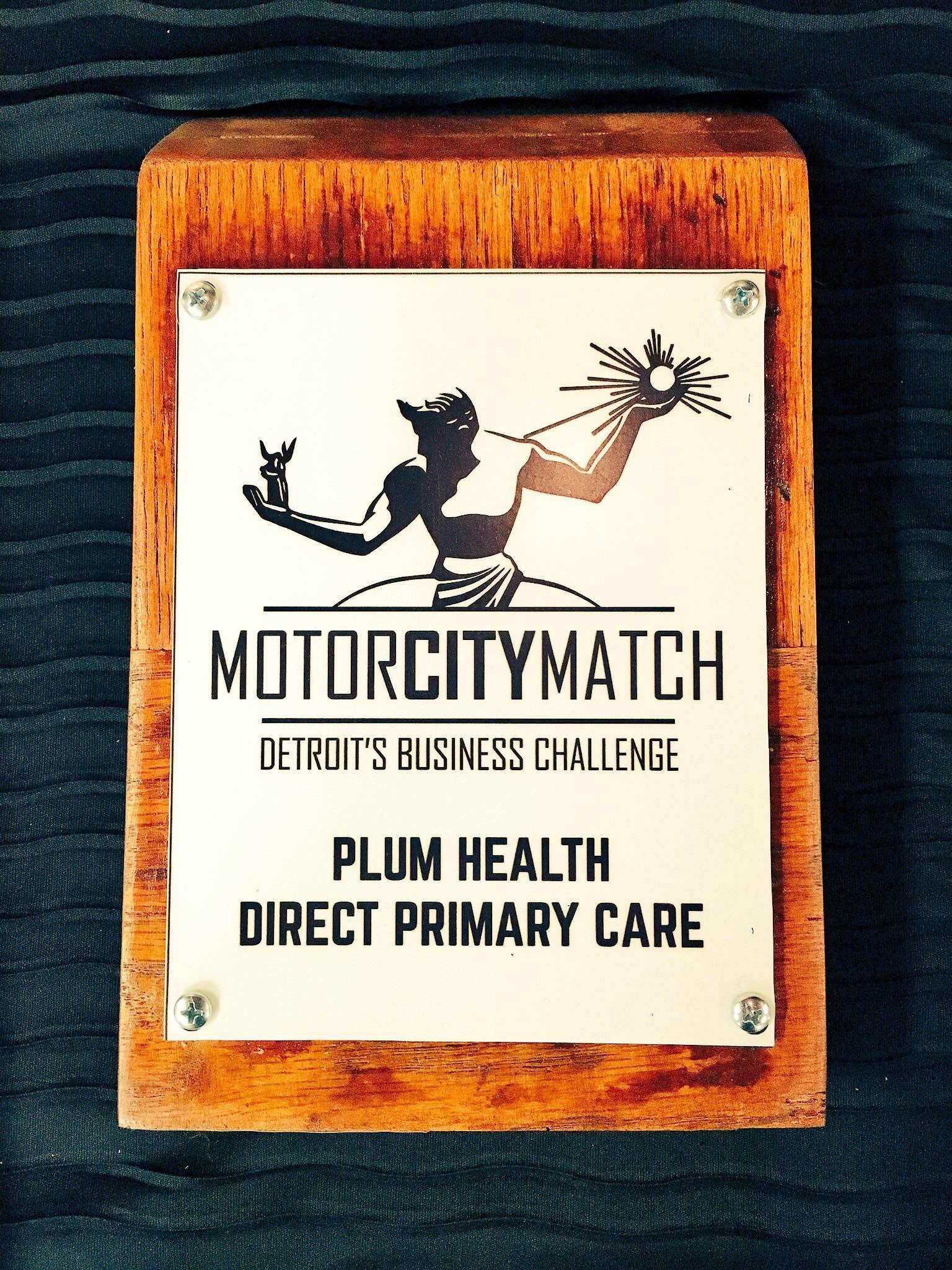Plum Health Blog
The Positive Impact of Direct Primary Care on Employer Healthcare Spending
In the ever-evolving landscape of healthcare, Direct Primary Care and Subscription-based Primary Care are emerging as promising models that could significantly benefit both employers and employees. Studies conducted by the Society of Actuaries (SOA) and Milliman provide valuable insights into these new models of healthcare delivery and financing.
DPC and Subscription-based Primary Care are healthcare delivery models where a provider offers unlimited specified routine healthcare services for a monthly fee. These models simplify the healthcare business by removing insurance companies from basic primary care. In exchange for a monthly, out-of-pocket fee, patients have unrestricted access to their physician and unlimited access to a defined package of services.
The potential benefits of these models for employers are vast. One of the key advantages is that they may provide employees and dependents with increased access to primary and urgent care services, from the same provider at no cost. This could also include access to no-cost or low-cost basic labs and prescription drugs.
Moreover, these models could lead to lower absenteeism rates among employees. This is because appointments can generally be scheduled at almost any time and wait times at the office are usually shorter. This flexibility can significantly improve the work-life balance for employees and increase their overall job satisfaction.
The SOA study provides some interesting data points. For instance, it shows that DPC can lead to a decrease in healthcare costs in various areas. The unadjusted DPC vs. traditional healthcare cost differences show a decrease of 12.78% for inpatient total costs, 49.81% for outpatient emergency department costs, and 28.05% for other outpatient costs.
The Milliman study further elaborates on the distribution channels for subscription-based primary care products. These channels include direct-to-consumer, direct-to-employer, and direct-to-payer. The study emphasizes that these models can address both the needs of enhancing consumer access to care, quality of care, and satisfaction with their overall care journey, as well as affecting an employer’s total cost of care.
The Milliman study also highlights the Pareto Principle, which states that 80% of healthcare expenditures come from 20% of patients. This principle is instructive for the design of primary care products, especially those targeting the majority cohort with limited and more transient healthcare needs.
Furthermore, the study provides a snapshot of the sources of health insurance coverage in the United States. As of 2019, 49.6% of the population was covered by employer-sponsored group insurance, 19.8% by Medicaid, 14.2% by Medicare, 5.9% by non-group (i.e., individual), and 1.4% by military. However, 9.2% of the population remained uninsured. These figures are important to consider when designing healthcare products, as consumers with different sources of coverage (or no coverage) have different experiences when they access and pay for healthcare.
Lastly, the study discusses the Quadruple Aim in healthcare, a set of principles many purchasers of healthcare consider a north star. The Quadruple Aim includes better health outcomes, improved patient experience, lower health costs, and improved clinician experience. A successful primary care product should meet these aims.
Despite the challenges, the potential upside of DPC and Subscription-based Primary Care for both employers and employees is significant. For employers, it can lead to lower healthcare costs and increased productivity. For employees, it can mean better access to healthcare, lower out-of-pocket expenses, and improved health outcomes. The SOA and Milliman studies provide a comprehensive evaluation of these models, highlighting their potential to transform the healthcare landscape. As more employers consider implementing these models, it's crucial to understand the potential benefits and challenges associated with these innovative models.
For more detailed insights, you can access the full studies here and here.
How to Start A Direct Primary Care Clinic Right Out of Residency
This week, I received a question from one of my followers on YouTube! Big shout out to everyone who follows/watches - I appreciate you!
Anyways, the question is this: do you recommend starting a Direct Primary Care practice right out of Residency Training? And yes, I do! There are several ways to go about this, but it is better to start right out of residency than to wait until you have established fee-for-service patients or established insurance-based contracts.
Probably the best way to do this is to work for the first 6 months out of residence in an infusion center, urgent care, or hospital setting. Take one of these "moonlighting" jobs, work 40 - 60 hours a week, and spend the remaining 20 hours in your work week setting up your Direct Primary Care practice.
So, how do you set up a Direct primary care practice?
First, start with why. For more on this, read Simon Sinek's book of the same name. In short, you want to create a business that reflects your "why", or why are you doing this? For me, I wanted to create a healthy resource for the community that was affordable and accessible for all people. The name "Plum Health" reflects that mission. Plums are affordable and available to the community. You can buy them at nearby Eastern Market or from your local grocery store. They are also purple, representing inclusion, and health giving.
Then, develop a brand and a website. You want to create a sleek, modern website with an easy-to-pronounce name. "Plum Health DPC" works for me for the following reasons: Plums are healthy, kind of like "an apple a day keeps the doctor away". Plums can be drawn by making two overlapping circles, for me symbolic of the doctor-patient relationship, which has greater overlap in my practice. Also, Plum Health DPC indicates that we're a Direct Primary Care practice - it says so in our name! Finally, the domain "PlumHealthDPC.com" was available, which is a must!
Try to avoid stuff like "Salubrious Health" or some similar SAT vocabulary word. Also avoid overly long names. Keep it simple! Other alternatives that would have worked well for me would have been "Plum Primary Care" or "Plum Family Medicine". If you live in a small town or are in a distinct neighborhood, you can highlight that neighborhood or town in your name. I am in the Corktown/Southwest Detroit neighborhood currently, so something like "Corktown Primary Care" or "Corktown Family Medicine" would have been reasonable, with a domain name like "CorktownPC.com", "CorktownFM.com" or "CorktownMD.com". But, choosing the name is contingent on the availability of the domain.
The only downfall to naming your brand after a specific location is that if you decide to expand and open a second location, your brand will be incongruous with that second location. For me, I know that I wanted to be in Detroit to start and the goal is to expand regionally, so choosing a name that was not location-specific was important to me.
Your website is super important because it becomes a beta test for your market. If you are getting good traffic, engagement and responses from the community, these are positive signs. If not, it's not the end of the world, you may just have to be more proactive with your marketing efforts.
Beyond Naming, branding, and websites
Beyond naming and branding, form an LLC, PLLC, or S-Corp. Consult with a lawyer on which is best for you. Perhaps hire that lawyer or set up a retainer agreement so that you can consult that lawyer as your business grows. Then, set up a business bank account. Link that business bank account to software like QuickBooks so that your expenses are tracked.
Everything that you spend on the practice stays within the practice, meaning that you should treat your business as a separate entity from your personal finances. You may infuse your business with your own capital and that's why working 40 - 60 hours/week makes sense for 6 months. This way you can make enough money to fund your DPC start-up.
Alternatively, you can get a business or medical practice loan from a bank like Wells Fargo or Bank of America. Next, you need to have someone review your expenditures, so hiring an accountant or having a retainer agreement with an accountant is a must.
Choosing an Electronic medical record
Then, you should choose an Electronic Medical Record (EMR). Personally, I use ATLAS MD EMR because the platform is made by DPC doctors for DPC doctors. Also, ATLAS has a billing platform integrated into the EMR, which makes your life and your practice easier to manage. You can link your ATLAS MD account to your website and have people sign up directly on your site - these are called pre-enrollments. You can do this on a trial basis with ATLAS, and once you hit your start date, all those "pre-enrollments" will become paying customers when you hit "start" on the EMR side. At that point, your customers will start paying you for services and you will start paying ATLAS for the platform.
Other contracts
During this time, you should also be setting up contracts with your service providers. Internet, copy/fax machine, lab services, medication wholesaler, medical supplier, medical waste, shredding, general waste, etc... You should also be looking around for real estate options. A good way to test your model is to sublease from an existing doctor's office. Maybe you can find a general surgeon and you could sublease a few unused exam rooms - one to see patients and one to store meds, supplies, etc... If you are successful in that sublease location, you can look at expanding your business and setting up your own lease.
Benefits to subleasing are numerous. You won't have to set up your own internet provider, copy machine, medical waste, shredding, and general waste contracts - they will likely be included in your lease agreement depending on what you negotiate for.
Final thoughts
Setting up a Direct Primary Care practice is not easy, but it can be done successfully if you take measured risks as you grow. The website is your first test. For me, I started making house calls as a second test. As a third test, I subleased a one-room office from a local school. The next test for me will be to lease out my own office/building, and I'm just about at that point!
Also in this vlog, I touch on Public Service Loan Forgiveness programs and the effect it may have on primary care doctors choosing Direct Primary Care practices. More on NPR's website.
-Dr. Paul Thomas with Plum Health DPC
One last thing, if you’re a Primary Care Doctor or Allied Health Professional that is looking to Start and Grow a Direct Primary Care practice, check out our sister site www.StartUpDPC.com. You’ll find more information and in-depth courses on building the Direct Primary Care practice of your dreams.
Thanks for reading and watching, and have a wonderful day!
- Dr. Paul with Plum Health DPC
Plum Health at DNewTech
Plum Health was invited to pitch at the March 1st DNewTech event. We were one of four small businesses to pitch our idea at the DNewTech event, which brought together roughly 35 people from the small business community in Downtown Detroit. There were some great ideas shared, which are outlined below.
First to take the stage was Sidney Coleman, Co-founder of Aradie, A Technology And Design Company, which began in late 2016. They aim to tackle the social media echo chamber. This can cause some real problems, including a loss of empathy, misinformation, and a loss of constructive debate. Their solution is Pective, a collaborative information platform that can allow people to contribute different perspectives on a specific topic.
Second was Sean Carroll, the Co-founder of Enbiologics, which is Advancing Healthier, Intuitive Burn And Wound Care. Sean talked about his product, HoneyCure, which reduces healing time and drug use like oral antibiotics. Currently, it's approved for veterinary medicine, but they are working on approval for human medical uses.
Then, I was able to give our pitch for Plum Health, which is Delivering Affordable, Accessible Health Care Services in Detroit. Mostly, I focus on telling the story of the business and why it's useful in this economy and in this environment. Throughout the pitch, I try to address the frequently asked questions
Finally, Doron York the Co-founder of SidePitch took the stage. He is connecting tech entrepreneurs and startups with investors and corporate ventures worldwide. They created a Venture Management System and entrepreneurs can start a "Pitchfolio". They have a unique offer until August 31st, where Michigan-based start-ups can pitch for free.
Erin Grant with the Detroit Development Fund, a private, non-profit fund, spoke before the event began. The Detroit Development Fund (DDF) provides small business loans in and around Detroit. They look to loan to small businesses that have been in business for the last 1 year and have generated $100,000 in revenue, but their parameters can be flexible on a case-by-case basis.
DDF have been funding small businesses since 2003 and they have 100 active loans currently. They seek to support small businesses and entrepreneurs. Their minimum loan amount is $50,000 and they can continue to loan up to $500,000 throughout the life of the business. Their goal is for business to become self-sufficient or to receive a more traditional loan.
Loan terms are typically 5 - 7 years and interest rates are roughly 7%. The key attributes of a business owner receiving the loan is their integrity and preparedness. The process of funding takes about 6 - 8 weeks, and there is a significant amount of vetting involved.
Thanks for reading!
- Paul Thomas, MD
Plum Health + Vitamin D
Vitamin D deficiency can be a big problem in the winter months, especially if you live up in Michigan! At Plum Health, we delivery direct primary care services, meaning that we can get you wholesale medications and at-cost laboratory services, including Vitamin D Levels and Vitamin D supplements.
You should have a vitamin D level of 20 - 50 ng/mL - some experts in the field recommend 20 - 40 ng/mL as the appropriate range, others recommend 30 - 50 ng/mL as the best range. However, experts agree that a Vitamin D level of less than 20 ng/mL can lead to problems with skeletal health.
Having a sub-optimal vitamin D level can lead to osteoporosis, an increased risk of falls and possible fractures. Additionally, having a low vitamin D level can put you at risk for immune problems and cardiovascular problems.
We make vitamin D in our skin, and this production is aided by sunlight. The American Academy of Family Physicians (AAFP) noted that "humans typically obtain 90 percent of vitamin D from sunlight". Unfortunately, because of low sunlight levels in the winter, our Vitamin D production ceases in temperate areas like Detroit, Edmonton, and Boston.
Furthermore, you are at an increased risk of having low vitamin D levels if you are sedentary, if you have dark skin, if you are obese, if you are over 65 years of age, or if you take medications that alter Vitamin D metabolism, like steroids or seizure medications.
So, unless you are a young, active snowbird, it is wise to take a vitamin D supplement to offset your lost productivity in the winter months. According to the AAFP, a 3.5 ounce piece of fresh, wild-caught salmon has roughly 600 - 1,000 international units of vitamin D. Other sources of dietary vitamin D include tuna with 230 IU's for every 3.6 ounces consumed and milk at 100 IU's for every 8 ounces consumed.
If you'd rather get your vitamin D in pill form, Vitamin D3 or cholecalciferol comes in doses of 400, 800, 1,000 or 2,000 IU's. These can be purchased over the counter, but it is best to talk to your primary care doctor before deciding on which dose is appropriate for you.
Thanks for reading and have a great day!
Paul Thomas, MD, Family Medicine doctor in Detroit, Michigan
Plum Health + Free Market Principles
At Plum Health, we leverage free market principles to deliver affordable, accessible healthcare services. We do this by using cash to purchase medications at wholesale prices. We also work with imaging service centers for at-cost imaging and lab companies for at-cost labs.
Because we pay cash for these services, they cost less. These services are often 80 - 90% less expensive than using your insurance to purchase the same exact services.
I like to use the auto insurance analogy to clarify this principle. Typically, you use your auto insurance to repair your car in the case of an accident. You don't call your auto insurance provider when you need to rotate your tires, change your oil, or put gas in your car. You buy these services on the free market because you can shop around and find the best prices.
If you did use your auto insurance to pay for oil, gas, and tire rotation, you would not only pay more for your insurance policy, but the prices for these individual services would increase because of the middle men that have to handle your money.
Similarly, the health care services provided by a primary care doctor (like me!) are relatively inexpensive. Like it costs next to nothing to check a blood pressure, listen to your heart and lungs, and fill a prescription. So I make the prices of our services transparent so that you understand exactly what you're getting and exactly how much you will be paying for those services.
Because you now have a known cost for the services that we provide, you can shop around, price compare and decide for yourself what makes the most sense for you. For example, let's say you need that MRI of the Cervical Spine. With Plum Health, you can decide if it's better to pay with cash or to use your insurance.
Just this week we ordered an MRI of the Cervical Spine for one of our members. About 4 years ago, he paid $2,000 for this MRI of the C-Spine. Through our contract with a local imaging company, we are able to deliver the same test for about $363.
To further this example, let's say your insurance coverage is 80/20 for services, meaning that your insurance pays 80% of the cost and you pay 20% of the cost. If you buy that MRI via your insurance company for $2,000, they will pick up 80% of the cost, or $1,600, and you will have to pay the remaining 20% of the cost, or $400. If you go this route, you may have just overpaid by $37.
That may not be a lot to overpay, but for families on a tight budget, every dollar makes a difference. We like to say that we can show you the true value of your health care dollar, and it's important for us to save you money for your health care services. When I took the Hippocratic Oath to become a doctor, I said "First do no harm", and I take that to mean financial harm as well.
If you'd like to learn more about how we use our free market principles to save you money on your healthcare services, don't hesitate to call me at 313.444.5630.
Also, this clip is taken from a longer interview that we did with PodBros! Check out their website and rate them on iTunes!
Thanks for reading!
- Paul Thomas, MD
Plum Health DPC Awarded $7,500 via TechTown Detroit
Over the past 9 weeks, I have participated in a class at TechTown Detroit called Retail Boot Camp. The RBC course is comprehensive in its approach to helping your business grow, from addressing your financial situation, to helping you choose a POS system, to refining your marketing and advertising strategies, and beyond.
The best part of the RBC course was having a strong group of entrepreneurs to work with and learn from - people like Jay Rayford of Social Sushi, Nicole Mangis of Brut Detroit, Lionez Kimber of Artistic Flesh Tattoo and Supply, and 16 more phenomenal, bright small business people. I learned a lot from their successes and emulated their approaches to doing business in the city.
The class culminated in the Retail Boot Camp Showcase, a mini pitch competition for the 20 students/small businesses who took part in the class. It was a great night that brought together teachers, mentors, supporters, consultants, family and friends.
We were able to give our 90 second pitch on Plum Health DPC and then we were selected to give a follow-up 3 minute pitch about our plan to deliver affordable, accessible healthcare services in Detroit. It was well received and we were ultimately awarded a $7,500 grant from TechTown!
There are a ton of people to thank: Faris Alami, our teacher during the course; Sarah Donnelly, who coordinated all of the RBC-related activities, Regina Ann Campbell who facilitated the course; Niles Heron, an extremely knowledgable consultant who helped our businesses grow/develop and who helped us perfect our pitches; all of the guest speakers that we had throughout the course, the judges from the night of the event (Lana Rodriguez, John Schoeniger, Bryan Waldron, Rachel Lutz, Michael Forsyth), and all of the supportive people in the TechTown ecosystem who are too many in number to name - thank you all!
We will be using this money wisely as we launch Plum Health DPC in Detroit!
- Paul Thomas, MD
Making Healthcare Hassle-Free
Plum Health is the first Direct Primary Care practice in Detroit, Southeast Michigan and Wayne County. It makes healthcare hassle-free. We diagnose, treat, refill prescriptions, refer you to curated specialists, and make all of the frustrations in healthcare disappear.
Because you have a doctor who is available and responsive, you never have to worry about being on your own or trying to figure out if something’s terribly wrong. People sometimes get scared and rush to the hospital, but a $6,000 ER visit can be financially devastating.
One avoided ER visit pays for 10 years of care at Plum Health DPC. Plus, you get peace-of-mind, knowing your doctor is always available. To schedule an appointment, check out our scheduling link. To find out more, or if you have questions, call 313.444.5630.
- Paul Thomas MD
Removing the barriers between you and your doctor.
Motor City Match grant awarded to Plum Health DPC
This was a big week for Plum Health DPC - we received a grant from the Motor City Match Program! This brings us one step closer to delivering affordable, accessible healthcare services in Detroit.
Crain's Detroit Business wrote an article about the event, and here's what they said about Plum Health DPC:
Plum Health Direct Primary Care, $50,000: This health care facility provides an alternative to the traditional fee-for-service model. Direct Primary Care emphasizes wellness, prevention, communication and personalized patient relationships. For a monthly fee, members receive primary health care services that are tailored to their needs. These might include annual checkups, urgent care services and direct and unrestricted access to their doctor through calling, texting, emailing or in-person visits. The business is planned for 607 Shelby St. in downtown Detroit.
Additionally, Local 4 News in Detroit (WDIV) wrote an article about and created a video of the Award ceremony. Here's what they said: "Six Detroit entrepreneurs are putting their small-business plans into action after the Motor City Match program awarded them thousands of dollars to get started. Mayor Mike Duggan made the announcement Friday morning."
An article from the Michigan Chronicle wrote about the award and quoted Mayor Duggan:
“Quality restaurants, health and wellness providers, arts centers are exactly the types of establishments that people expect when they think of a strong community,” said Detroit Mayor Mike Duggan. “These Detroiters are proving that our neighborhoods are great places to start a business.”
This is another step in the journey toward bringing affordable, accessible healthcare services to Detroit and we will continue to work diligently to deliver these services.
- Paul Thomas, MD
Plum Health Direct Primary Care for Employers
Plum Health Direct Primary Care can deliver high-quality, cost-saving care for businesses of any size.
Direct Primary Care is an exciting alternative to the traditional fee-for-service model. This is true for individuals, but especially true for small, medium, and large businesses.
To the employers and HR personnel of the world, Plum Health can provide comprehensive family medicine services to your employees for a low monthly cost. Imagine having a doctor that your employees can call, text, or email at anytime. Your employees can also visit our doctor anytime without a copay.
We believe that this increased responsiveness and availability can reduce down-stream costs. We also believe that your employees will be more proactive about their health when they don't have to pay a co-pay. For example, we treat simple bladder infections in the office before they become pyelonephritis in the ER, coughs and colds before they become pneumonia.
There are several benefits to enrolling in a Direct Primary Care plan. Here are three of the big ones for employers:
1.) Decreased Absenteeism
By offering efficient and convenient care, we can reduce employee absenteeism. Because there is very little wait time to see the Doctor, simple ailments are caught before they become bigger problems.
2.) Reduced Medical Expenses
Every time that we prevent a visit to the Urgent Care or the Emergency Department, we save you hundreds and thousands of dollars. To optimize your value, we recommend pairing our services with a high-deductible, low-premium insurance plan.
3.) Attracting and Retaining Talent
By offering a health care plan that is a meaningful benefit to your employees, you can leverage recruitment. We know the high quality care that we are capable of delivering, and your employees will appreciate these services.
To find out more, call us at 313.444.5630.
- Paul Thomas, MD
So, Why Plum?
When people talk with us, they often ask: "So, why Plum?"
For us, a Plum is healthy. It fits in your hand. It's purple. It's simple. It's two overlapping circles.
A Plum is a healthy food, and at Plum Health DPC we know that taking better care of yourself begins with what we eat and how we move. The choice of a Plum is inspired by bike rides to Eastern Market, and finding those healthy foods. At Plum Health, we can direct you to healthy resources throughout Detroit and Metro Detroit.
A Plum is simple, it fits in your hand, and you can take it with you. At Plum Health DPC, we have set out to simplify health care for our members. We aim to eliminate the frustrations in the fee-for-service system like waiting too long to see your doctor, confusing billing, and co-pays.
You can also take our services with you. Say you're traveling and something comes up, we can help to guide you through whatever problems you face. Maybe it's talking you through a head cold, reviewing a management plan, or sending a medication that you forgot at home to the pharmacy nearest you.
A Plum is purple. At Plum Health DPC, we proudly serve and welcome people of all backgrounds. All ages, stages, races, ethnicities, and orientations are welcome. Additionally, our price points for individuals are less than a typical cell phone bill. Our price points for families are less than a typical cable bill. This allows us to serve people of all income levels.
Finally, a Plum can be drawn with two overlapping circles. To us, this symbolizes the doctor - patient relationship. At Plum Health, there is more overlap in the relationship between doctor and patient. We believe that having a closer relationship with your doctor can allow you to live a healthier and happier life.
- Paul Thomas, MD
Plum Health DPC, challenging the status quo for healthcare in Detroit
The status quo in Primary Care is not good enough. We shouldn't have to take a half day off of work to see our doctor for ten minutes. We shouldn't be confused by billing. It shouldn't be so hard to get an appointment or talk with our doctor.
At Plum Health DPC, we believe in challenging that status quo. We believe that you shouldn't have to wait for your doctor, but that your doctor should wait on you. We believe that you should be able to text or call your doctor anytime. We believe in clear and consistent pricing.
We think differently about healthcare and its delivery because we want happy members with easy access to our services. We deliver a healthcare product that is affordable, easy to use, and well designed.
Start your journey to better health with Plum Health. Direct. Primary. Care.
- Paul Thomas, MD




